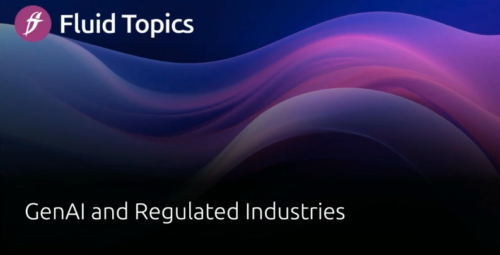Recorded on
February 7, 2024

When should regression testing be performed?
Regression analysis of PDFs allows you to test system changes, changes to CMS, changes to stylesheet, changes to formatting software, and changes to graphic software.
Regression testing should take place anytime your system, hardware, or software changes to determine if what was correct in the output is still correct in output. Changes may result in content disappearing, incorrect formatting, changes to the integrity of images and tables, and many other (sometimes subtle) issues that invalidate the reliability of the document.
Antenna House Regression Testing System is for Automated – Fast – Accurate PDF to PDF & Image to Image Visual Comparisons
Presented by Michael Miller

Michael Miller is Vice President of Antenna House, Inc., a company that has developed one of the leading standards‐based (XSL‐FO and CSS) document formatting software products on the market today. Michael has a degree in Printing Engineering and Management and has been involved in high‐end composition, document formatting, and document management for over 40 years. He has an extensive background with structured data, including SGML, XML, S1000D, and DITA. During his career, he has worked in Europe and North America and has been involved in the implementations of some of the largest fully automated publishing and document formatting projects.
 Much has been said about AI writing content, but what about reading it? What unique benefits does Generative AI provide for users to utilize and leverage your content? Actually, some of the most profitable GenAI use cases are related to the transformation of content delivery.
In this webinar, we will explore successful initiatives in GenAI-augmented Content Delivery, from search to reading experience, and personalized and automated question answering. We will showcase some examples of AI implementations in Fluid Topics’ content delivery platform, transforming product content and enterprise knowledge into exceptional user experiences.
Join Fabrice Lacroix, CEO of Fluid Topics, for an insightful session rooted in two decades of research and development in Large Language Models (LLM) and AI, along with recent AI projects within the industry.
Presented by Fabrice Lacroix
Much has been said about AI writing content, but what about reading it? What unique benefits does Generative AI provide for users to utilize and leverage your content? Actually, some of the most profitable GenAI use cases are related to the transformation of content delivery.
In this webinar, we will explore successful initiatives in GenAI-augmented Content Delivery, from search to reading experience, and personalized and automated question answering. We will showcase some examples of AI implementations in Fluid Topics’ content delivery platform, transforming product content and enterprise knowledge into exceptional user experiences.
Join Fabrice Lacroix, CEO of Fluid Topics, for an insightful session rooted in two decades of research and development in Large Language Models (LLM) and AI, along with recent AI projects within the industry.
Presented by Fabrice Lacroix





 Jacob Brennan is a Technical Sales Product Specialist at Stilo. He works with Stilo Migrate customers and aids in converting their legacy content to DITA. Jacob is a recent graduate from the University of Ottawa holding a BASc. in Mechanical Engineering and a BSc. in Computing Technology.
Jacob Brennan is a Technical Sales Product Specialist at Stilo. He works with Stilo Migrate customers and aids in converting their legacy content to DITA. Jacob is a recent graduate from the University of Ottawa holding a BASc. in Mechanical Engineering and a BSc. in Computing Technology. 

 Tristan is Product Director at DeltaXML, a technology company with world-leading software products for the management of change in structured content. He has a deep understanding of DeltaXML’s product suite and loves to help customers create extra value in their content using change management. Tristan is a father to three daughters, a movie lover, and a keen runner.
Tristan is Product Director at DeltaXML, a technology company with world-leading software products for the management of change in structured content. He has a deep understanding of DeltaXML’s product suite and loves to help customers create extra value in their content using change management. Tristan is a father to three daughters, a movie lover, and a keen runner.
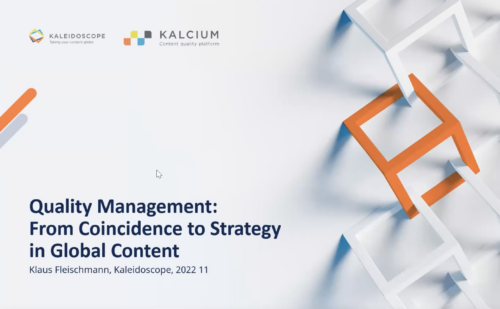

 Klaus Fleischmann studied translation and IT in Vienna, holds an MA in Conference Interpreting from Monterey, California, and a MAS in Technical Communication from Krems, Austria. In 1996, he founded Austria-based Kaleidoscope, a company implementing content, translation, and terminology management processes for internationally active companies. Kaleidoscope develops online collaboration software for enterprise-level terminology workflow, translator query management, in-country review etc., making the translation quality process comprehensible and strategically manageable. In 2007, he became CEO of Austria´s leading LSP, Eurocom Translation Services. Always active in the industry, Klaus got voted into the Gala Board of Directors in 2015 and 2017.
Klaus Fleischmann studied translation and IT in Vienna, holds an MA in Conference Interpreting from Monterey, California, and a MAS in Technical Communication from Krems, Austria. In 1996, he founded Austria-based Kaleidoscope, a company implementing content, translation, and terminology management processes for internationally active companies. Kaleidoscope develops online collaboration software for enterprise-level terminology workflow, translator query management, in-country review etc., making the translation quality process comprehensible and strategically manageable. In 2007, he became CEO of Austria´s leading LSP, Eurocom Translation Services. Always active in the industry, Klaus got voted into the Gala Board of Directors in 2015 and 2017. 






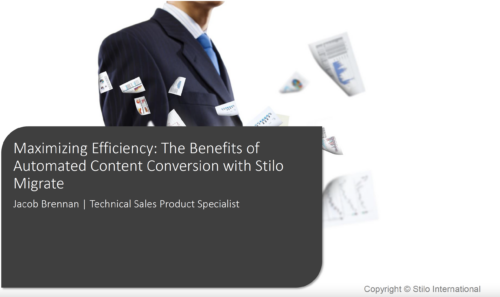
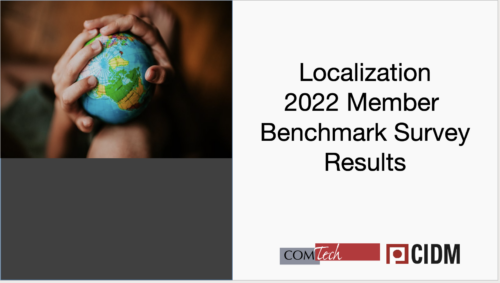

 Dawn Stevens, President, Comtech Services and Director of CIDM has 28 years of practical experience in virtually every role within a documentation and training department, including project management, instructional design, writing, editing, and multimedia programming. Dawn is the perfect advisor to identify and remove the challenges you face in producing usable, technical information and training content. With both engineering and technical communication degrees, Dawn combines her solid technical foundation with strong writing and design skills to lead our team of consultants and specialists in providing the expertise you need.
Dawn Stevens, President, Comtech Services and Director of CIDM has 28 years of practical experience in virtually every role within a documentation and training department, including project management, instructional design, writing, editing, and multimedia programming. Dawn is the perfect advisor to identify and remove the challenges you face in producing usable, technical information and training content. With both engineering and technical communication degrees, Dawn combines her solid technical foundation with strong writing and design skills to lead our team of consultants and specialists in providing the expertise you need.

 TJ Dhaliwal is a Technical Sales Product Specialist at Stilo, helping customers uncover solutions to their content conversion needs. With a solid technical background in engineering and a passion for public speaking, he’s successfully bridged the gaps between project stakeholders. As a problem solver, TJ has helped several enterprise-level companies convert tens of thousands of pages of their content to DITA.
TJ Dhaliwal is a Technical Sales Product Specialist at Stilo, helping customers uncover solutions to their content conversion needs. With a solid technical background in engineering and a passion for public speaking, he’s successfully bridged the gaps between project stakeholders. As a problem solver, TJ has helped several enterprise-level companies convert tens of thousands of pages of their content to DITA.



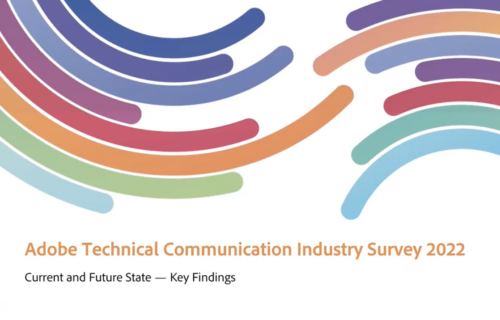

 Stefan Gentz is the Senior Worldwide Evangelist for Technical Communication at Adobe, headquartered in San Jose, California, USA. Stefan’s mission is to inspire enterprises and technical writers around the world and show how to create compelling technical communication content with the Adobe Technical Communication tools. He is also a certified Quality Management Professional (TÜV), ISO 9001 / EN 15038 auditor, ISO 31000 Risk Management expert, and Six Sigma Champion.
As a sought-after keynote speaker and moderator at conferences around the world, he travels around the globe half of the year. Besides that, he has been the European Ambassador for the Globalization and Localization Association (GALA) for many years, a member of the tekom Conference Advisory Board for several years, and a founding member of the tekom
Stefan Gentz is the Senior Worldwide Evangelist for Technical Communication at Adobe, headquartered in San Jose, California, USA. Stefan’s mission is to inspire enterprises and technical writers around the world and show how to create compelling technical communication content with the Adobe Technical Communication tools. He is also a certified Quality Management Professional (TÜV), ISO 9001 / EN 15038 auditor, ISO 31000 Risk Management expert, and Six Sigma Champion.
As a sought-after keynote speaker and moderator at conferences around the world, he travels around the globe half of the year. Besides that, he has been the European Ambassador for the Globalization and Localization Association (GALA) for many years, a member of the tekom Conference Advisory Board for several years, and a founding member of the tekom  Saibal Bhattacharjee has been with Adobe for more than 12 years now and is currently working as Director of Product Marketing & Business Strategy in the Digital Advertising, Learning & Publishing business unit.
Saibal is in charge of GTM and Business Strategy for a $140MN+ product portfolio in Adobe – ranging from market-leading cloud-native component content management system (CCMS), advertising & subscription monetization products for connected multiscreen TV platforms, content authoring, and publishing desktop apps, to print & scan solutions that power Office and Commercial printers, etc.
Saibal drives the products’ positioning and messaging, brand strategy and communications, marketing campaigns and demand generation (growth and retention), partner ecosystem and new market development, customer education, business insights, market research, and analyst relations, sales enablement, and field marketing efforts.
LinkedIn:
Saibal Bhattacharjee has been with Adobe for more than 12 years now and is currently working as Director of Product Marketing & Business Strategy in the Digital Advertising, Learning & Publishing business unit.
Saibal is in charge of GTM and Business Strategy for a $140MN+ product portfolio in Adobe – ranging from market-leading cloud-native component content management system (CCMS), advertising & subscription monetization products for connected multiscreen TV platforms, content authoring, and publishing desktop apps, to print & scan solutions that power Office and Commercial printers, etc.
Saibal drives the products’ positioning and messaging, brand strategy and communications, marketing campaigns and demand generation (growth and retention), partner ecosystem and new market development, customer education, business insights, market research, and analyst relations, sales enablement, and field marketing efforts.
LinkedIn: 